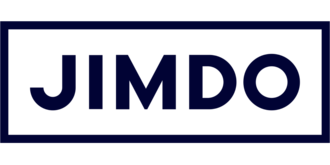
news
Lessons In Scaling A Startup: The Founder Of Jimdo On His Quest For Startup Agility

Startup founders no longer have to hire teams of developers to build their company website. Nor do they face the daunting prospect of having to learn how to code themselves. Instead they have numerous self-build options to choose from in what has become a fiercely competitive marketplace, with the likes of Wix and Weebly among the biggest players.
Just a couple of decades or so ago, just as the sector was starting to take shape, three German school friends, Matthias Henze, Fridtjof Detzner and Christian Springub, who’d started coding together, also decided to start a business together.
In 2007, with very little money, they moved into an old farmhouse owned by Detzner’s parents and launched Jimdo, a company that provides the tools for fellow entrepreneurs and small businesses to build a website.
Today the company has created more than 20 million websites and enjoyed huge success, but not without its setbacks. Having started out around the same time as Weebly and Wix, Jimdo’s founders knew that to stand out they had to choose a different path to their competitors, who were carving out a large slice of the market through high profile media marketing campaigns.
“We’ve always focused on developing our product and customer experience first and things like promotion and TV advertising, were not our top priorities," says Henze. still grown quickly, and that has been based largely on customer recommendation; we have a loyal community who do most of our promotion for us.”
In a break with tech startup tradition, Jimdo stayed bootstrapped, declining investment, for a long time, because the founders wanted to retain control. But by 2015, having previously only taken $600,000 of external capital, they secured a $29 million (€25million) minority investment from Spectrum Equity.
“We saw it as a huge opportunity to push our product to a larger audience, and we’ve already seen the difference those advertising dollars make,” says Henze.
What really sets Jimdo apart, says Henze, is the ease with which small businesses can use their products to create outstanding websites. “We own ‘easy’,” says Henze. But that in itself entailed significant risk when they shifted focus from their very successful core product Jimdo Creator, and into disruptive technologies, with the launch of an AI-driven website builder Dolphin.
“Jimdo Creator is an awesome tool that we’ve spent ten years on, and so taking a chance on something new has been scary and exciting,” he says. “But we’re driven by our mission to help entrepreneurs, and here we saw an opportunity to make website creation radically easier.”
Traditional website builders have become extremely powerful and able to create extremely sophisticated results, but for most people they still take too long and involve a steep learning curve.
“Sure, they don’t require coding, but they still require a basic crash course in web design, and you have to put a lot of the pieces together yourself,” says Henze.
With Dolphin, they the system pulls everything together quickly and their online content is ready and waiting. From there Dolphin provides further support, for example, handling some of the SEO tasks.
One of the most challenging aspects of growing the business was the realization that scaling the team was making them slower, not faster. They needed to cut staff to become agile again and had to reorganize their teams and some internal structures, which enabled them to focus on the speed of product development once again.
“Even though the changes were necessary, it was a really painful time for us,” says Henze. “Now that we’ve come through it, I see the positive effects every day, with everything moving faster, and the momentum is exciting and invigorating.
Today the company turns over between $46 million (€40 million) and ¢58 million (€50 million) annually and employs over 200 people across Europe and Asia, supporting customers eight languages.
Jimdo Creator, consistently ranked among the best in the traditional website builder space, has been used to create more than 20 million websites, with Dolphin’s advanced product capabilities increasingly popular with AI website builders.
“Some of our competitors are much bigger, but that doesn’t bother us,” says Henze. ‘It’s a matter of opinion whether you need the best product on the market to be a market leader, but we believe that in the long run, the company with the best product and strongest core values will come out on top.”
Their biggest motivator, he says, is their positivity and belief in their ability to change things. “I truly believe that a small, dedicated group of people can achieve almost anything,” says Henze.
Written by Alison Coleman, Forbes